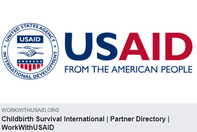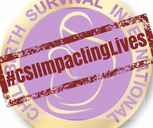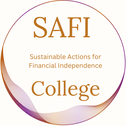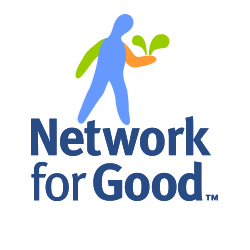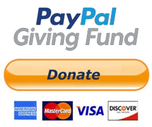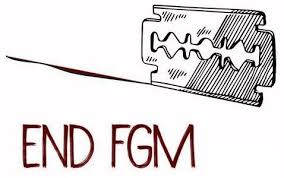 The World Health Organization (WHO) outlawed female genital mutilation (FGM) on the grounds that it is a violation of human rights of girls and women. The procedure has no health benefits and is not supported by any religion, the latter being an excuse used by many supporters of this inhumane act, which only reflects deep-rooted inequality between the sexes, and constitutes an extreme form of discrimination against women and girls. In Vienna in 1993, the UN World Conference on Human Rights called the elimination of all forms of violence against women a human rights obligation. It worries many that even thought the international community has broadly recognized the human rights implications of FGM, more than 200 million women and girls alive today have been cut in 30 countries in Africa, the Middle East and Asia where FGM is prevalent (WHO, February 2016). As a public health practitioner and having worked in the reproductive health field it worries me that I see too many missed opportunities. Integration and collaboration are not just fancy words in our field, rather initiatives we should embrace by highlighting issues such as FGM, suggesting means for it to be incorporated in all maternal and child health programs. Education and community sensitization is key; and getting the support of males and religious leaders should never be underestimated in the fight to end FGM. Food for thought and action. Let's make a difference - International Day for Maternal Health and Rights. By Dr. Ilham Siddig, MPH CSI Proposal Development Leader, Qatar, Doha
0 Comments
 I became a mother in the United States and after the birth of my two oldest children, it was not feasible for me to study my lifelong passion, which was medicine at that time. It was a bitter and difficult decision to give it up for another health field that was more flexible for a new mother. Looking back now, I can say with so much passion that my little experience in the medical field, made it easy for me to delve into the field of Public Health, without much ado. More so, I unconditionally fell in love with Maternal and Child Health (MCH). Now, I rave about MCH, I talk about it, write about it, spread the word about it, love it inside and out, and truly, I breathe it! MCH has become one of my undying sweethearts! It’s an irony that in this day and age, MCH rights are still one of the public health issues we deal with in our world of today. It is sad, pathetic, and heartbreaking that women die almost every minute in Nigeria where I hail from, and in so many countries in the world, mainly because of lack of basic emergency services. But hope is not lost. I have been hopeful for many years and through these years, I have seen the springing up of so many MCH-specific organizations, tending to the lives of women, children, and youth. One of them is Childbirth Survival International, co-founded by one of my sweet and ever smiling friend, Tausi Suedi. I call her ‘Professor Tausi’. I feel blessed and fortunate that I am part of the movement towards removing any kind of barrier against maternal health and rights. We, as women, need to be our own driving force in speaking up for what is right and advocating for justice and basic human rights. We, as women, need to serve the underserved and less fortunate with our time, talents, and treasures, wherever we are. Of course, this has to start from the home by empowering family members so that there would be a triple effect across communities. As we all celebrate life through serving many women, mothers, and children locally and globally, let us take this time to ponder and reflect on the opportunities we have been gifted with, that we often take for granted. Let us seize this opportunity to support and amplify the voices for maternal health and rights. By Maryam Funmilayo, Raleigh, North Carolina From conception, weeks of shaping and forming in the womb, childbirth, and immediately after childbirth the level of care, access, support, services, information, and respect that pregnant women receive varies from country to country and within countries. Pregnancy and childbirth in many developing countries is a "silent killer". Causes such as excessive bleeding, pre-eclampsia, eclampsia, obstructed labor, complications from malaria and HIV/AIDS, to lack of reliable transportation, lack of skilled staff, lack of supplies & medicines, and underlying poverty, sadly make pregnancy and childbirth seem like a disease or illness.
These issues are present because prioritizing women's health in developing countries has never been a priority to begin with. Maternal health needs to be addressed holistically and more than obstetricians, nurses, midwives, and maternal health experts need to be engaged in the dialogue to eliminate preventable maternal mortality. On May 13th, Runway Moms For A Cause and Moms 'N Charge will bring together an audience filled with experts from all walks of life - from engineers, lawyers, TV show hosts, journalists, medical and health specialists, bloggers, philanthropists, business owners, to interested individuals to support Childbirth Survival International programs, which are addressing maternal health in Tanzania, Uganda, and Nigeria. Mothers in America who have had a childbirth experience many mothers in developing countries only dream about, will walk the runway on May 13th at The Westin Crystal City Hotel because they believe in CSI's mission and vision #EveryBirthCounts. RSVP today and join this cross-sector dialogue and help make a difference. We need to change the tune together! Fashion show host: Paul Wharton of Style. Tickets: http://www.runwaymoms.org/tickets/ I look forward to seeing you! Tausi Suedi, CSI Cofounder |
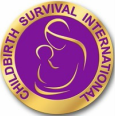
 RSS Feed
RSS Feed
